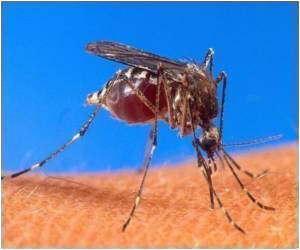A new mosquito in the west African nation of Burkina Faso has been discovered by researchers.

Researchers grew generations of the new type in the lab and found it be more susceptible to the Plasmodium falciparum parasite, linked to malaria, than other types they had previously found and classified.
"Adult mosquitoes raised directly from wild larvae were fed on blood infected with wild P. falciparum," said the study in the journal Science.
The outdoor mosquitoes showed a "significantly greater" infection rate (58 percent) compared to the indoor types (35 percent).
Previous research in Nigeria in the 1970s showed that efforts to control malaria failed because outdoor-resting mosquitoes allowed malaria to perpetuate despite the use of indoor insecticides.
Researchers said the new type's susceptibility to malaria could mean it is "quite young, evolutionarily," and urged the collection of more adult mosquitoes in the wild for further analysis.
Advertisement












